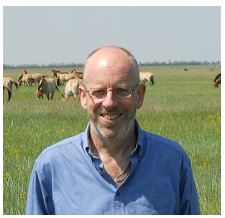
The Amerikan Steppe: Influences from Russia and Ukraine on the Great Plains, 1870s-1930s
Oct. 12, 2016 12:00 pm–1:00 pm
Center for Great Plains Studies Room: 6th Floor, Schorr Suite
1155 Q St.
Lincoln NE 68588
Directions: 11th and Q streets
Katie Nieland, 402-472-3965, knieland2@unl.edu
David Moon, Professor of History at the University of York, will give a brown bag talk on Russian Steppe influences on the Great Plains on Oct. 12 at noon on the 6th floor of the Center for Great Plains Studies. Please bring your own lunch if you wish.
Moon will talk about his research regarding the how agriculture on the Russian and Ukrainian steppes influenced the transformation of the American Great Plains from grassland to a major agricultural region. Many crop varieties, farming and forestry techniques, and modern soil science were adapted from the steppes, facilitated by migrant farmers, Mennonites, Germans from Russia, and scientists. Dr. Moon is Anniversary Professor in History at the University of York, United Kingdom, and currently holds a Leverhulme Major Research Fellowship. His most recent book is The Plough that Broke the Steppes: Agriculture and Environment on Russia’s Grasslands, 1700-1914 (Oxford University Press, 2013)
Moon says about his project: “This project explores influences from the steppes of Russia and Ukraine on the American Great Plains. By analyzing connections between two regions with similar environments and environmental histories, it considers how far the transformation of the Great Plains into a major agricultural region drew on prior experience on the Russian and Ukrainian steppes. Drawing on research spanning the humanities, social and natural sciences, it sheds light on this under researched aspect of American history and challenges preconceptions of the relationship between Russia and the USA. Moreover, it offers historical analogies to contemporary issues of global food security and sustainability at a time of environmental change.”
More details at: https://www.york.ac.uk/history/research/majorprojects/theamerikansteppes/